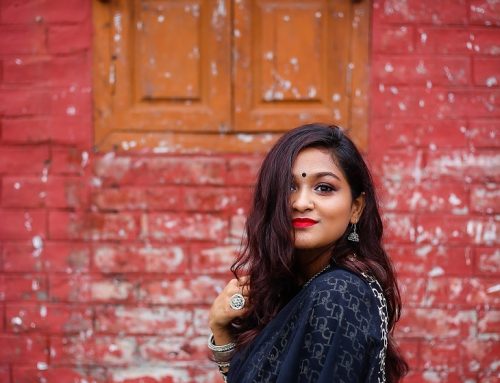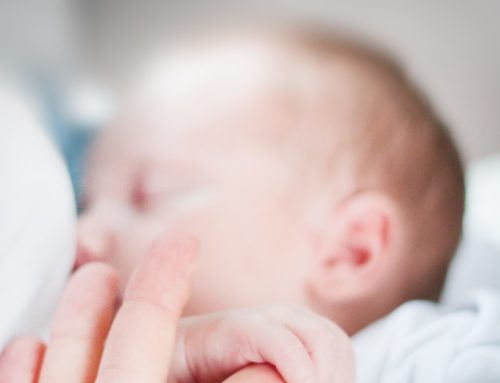“Breastfeeding is a mother’s gift to herself, her baby and the earth” – Pamela K. Wiggins.
You may have heard from many sources that breast milk is considered to be the best source of nutrition for newborn baby. Breast milk is known to promote growth and development in infants as well as protect them from many diseases. Breastfeeding contributes towards the physical and emotional well being of the mother, helps in faster recovery from childbirth and is known to reduce the risk of ovarian cancer and breast cancer. Breastfeeding is easy and economical as it involves no additional work or expense for preparing baby food and cleaning/sterilising feeding equipment. It is also considered to be the most environmentally friendly way to feed and nourish newborn baby. WHO highly recommends exclusive breastfeeding (EBF) for the first six months of baby’s life (no food except mother’s milk, and no drink, not even water, should be fed to the newborn during EBF).
Though breast milk is a natural and ideal first food for baby, the act of breastfeeding itself does not come naturally to most of the mothers … it is popularly considered a learned behaviour. Mothers/parents may often require guidance from qualified professionals to inculcate suitable nursing practices and/or support from caregivers to sustain EBF.
I was educated about the numerous life long benefits of breastfeeding at Rolly Sapru’s Pre-natal classes. Her invaluably insightful lectures about breastfeeding were the primary reason for my increased awareness about EBF and also for my resolve to EBF my baby. When Anu was born, I exclusively breastfed her for the first six months.
Anticipation and Anxiety about EBF
Before Anu’s birth, I had a lot of questions on my mind. I was anxious if the baby would latch well? If I would lactate well? If the hospital staff would be supportive to ensure, I could breastfeed within 1-2 hours of my baby’s birth, etc.. A lot of this anxiety stemmed from the fact that ‘someone I knew’ had faced a similar problem. However, Rolly’s lectures inspired and equipped me to embrace this journey and face possible bumps on the way.
I had an emergency C-Section and dozed off during surgery (I desperately wanted to tell my OB/GYN Dr Raut to wake me up within 2 hours of surgery to feed my baby but dozed off before uttering a word 😛 ). When I finally woke up (an hour and twenty minutes later) in the recovery room, Dr Raut asked me to feed my baby immediately. Since family members were not allowed in the recovery room, I was anxious if I could feed her without any help for the very first time.
Start of my EBF Journey
Anu latched well from the very start and had her first feed on the side (since I could not get up for 24 hours post-surgery, I was asked to feed sideways). Fortunately, supply was also sufficient for her. For the next 48-72 hours, Anu demanded feed every 2-3 hours, cried just before feed time and slept for most of the time.
Most of my worries related to breastfeeding faded within the first three days, and I became confident of the journey ahead.
My EBF Journey over six months
Anu’s initial feeding sessions would last 30-40 minutes. Feeding time per session gradually reduced as she grew older and better at sucking and came down to 5-7 minutes by six months.
I fed her from one breast per feeding session. Also, I fed her only on demand, even if sometimes she demanded feed every 1.5-2 hours and on a few occasions, the gap between 2 feeds was as long as 7-9 hours. But generally, she required to feed every 3-5 hours (especially after the first 4 weeks).
In the first 3-4 weeks, she would tend to sleep off at the breast while feeding. My husband or I would gently tickle or rub her feet, or at times we would even pinch her very gently to wake her up.
I introduced expressed milk in the bottle when she turned two months old, and she took it well. I used the bottle occasionally only, like when I had to step out, and someone fed her in my absence.
Feeding session is a great bonding experience. So I tried to have minimal to no distractions during feeding for both me and Anu. Not having distractions especially helped when she became a bit older (a baby older than 2-3 months can get easily distracted during feeding).
Our EBF journey did have a few bumps. Anu had one (suspected) episode of colic at around four weeks and another one (surprisingly) around five months. I had engorged breasts for the first 3.5 months which demanded regular expressing/pumping (to relieve engorgement) and an associated routine of storing expressed milk, cleaning and sterilising the pumping and storing accessories. When Anu was four weeks old, I experienced pain in my back, especially while feeding, as I was slouching a lot due to my habitual posture and engorged breasts. On Doctor’s recommendation, I consciously started maintaining an upright posture and took a daily brisk walk for 30-40 minutes, which considerably alleviated my back pain. Also, on the suggestion of a few of my friends, I started using a feeding pillow. It provided great support to the lower back and helped maintain good posture while feeding. Invest in a good feeding pillow.
As a first time mother, I felt the initial 4-6 weeks of EBF were slightly rough. Anu’s feed-pee-poop-vomit-sleep in repeat mode (and in no specific order) felt crazy. Waking up every 2-3 hours each night for feeding on demand, became exhausting. Each feeding session would last for 20-40 mins, followed by burping her and holding her upright for 15-20 minutes (since Anu would spit milk frequently, this routine was recommended for each feeding session to reduce spitting). But around 5-6 weeks after her birth, there was some pattern to her pee/poop, sleep and feed routine and I also learnt to do my daily activities around her routine. Around this time, Anu started recognising me and smiling at me and that feeling of craziness diluted :-).
Except for these minor bumps, it was a smooth ride. Fortunately, Anu gained weight at a healthy rate.
Diet during EBF
I strived for a balanced, nutritious and calorie-rich diet during the six months of EBF (actually most of it continued for twelve months, even after solids started). I also included calcium and iron-rich food items in my daily diet and avoided spicy food. I ensured to drink 2-3 litres of Ajwain water daily ( Ajwain water in mother’s diet is known to prevent gassiness in baby and mother. In my experience, it helped a lot with restricting gas issue in Anu. On days I didn’t have it even I would feel bloated and gassy). My total water intake was around 3-4 litres daily as recommended during lactation. My snacks (Click here what are the nutritious, yummy & easy traditional snacks for breastfeeding mothers) usually consisted of traditionally recommended lactation boosting food items like fruits, Laddoos made of Methi seeds, Dink/edible gum, dry fruits, etc.. But of course there were cheating days :-). Also, I did not strictly exclude any food item from my diet.
Breast Feeding in public
Around 6-8 weeks after Anu’s birth, I started taking her out occasionally ( to run errands, for shopping or dining, to social gatherings, travelling outstation, etc.). While she was out with me, I have breastfed her (on demand) in taxis, flights, malls, restaurants, at social gatherings, etc.. My advice, based on experience, to moms who hesitate to feed the baby in public: do not feel shy to nurse in public places. You will be surprised but people are usually very supportive of nursing, and they leave you and your infant alone. Invest in a good feeding cover.
People who made it possible to EBF for six months
Someone has said, “Breastfeeding is your gift to your baby that lasts a lifetime”. But EBF is a journey with its fair share of ups and downs. Our EBF journey was, fortunately, a relatively smoother ride. And it was possible due to the help, support and encouragement of few people. I am incredibly thankful to Rolly Sapru for creating awareness about EBF and the support group she has created for fellow mothers to help each other in this EBF journey. Cannot thank enough my Aai, for meticulously (and untiringly) preparing calorie-rich, lactation boosting, nutritious food required for proper lactation (click here to read about my postnatal diet). Not just food, she helped me initially with feeding, provided insights to relieve breast engorgement painlessly, encouraged and supported me to EBF (I can write a separate post about my Aai’s invaluable help, support and encouragement in my first year of motherhood 😛 ). A special mention to my OB/GYN Dr Raut and support staff at Hiranandani hospital for ensuring Anu had her first feed within 2 hours of her birth. They also guided me well (with demos when asked) about different feeding positions, relieving breast engorgement, burping techniques, baby and self-hygiene during nursing, etc..
Common challenges during EBF
WHO highly recommends EBF for the first six months of a baby’s life but social awareness about EBF in India seems unfortunately limited. If you are determined to EBF for 6 months, be prepared to face stiff resistance from elders or older family members who may give unsolicited advice to start a top feed for baby (especially as a comment on baby’s physical appearance).
Breastfeeding can be a challenge, especially in the initial days after childbirth. Challenge can be of physical, emotional, medical or any other nature. Some of the common challenges during EBF are inadequate lactation, improper latching, lumps or blocked ducts in the breast, mastitis, sore/flat/inverted nipples, personal or professional problems, postpartum depression, physical stress, calorie deficient diet, etc.. These issues, if persistent, can take a toll on emotional well being of the mother and further affect her chances of EBF. With appropriate medical/professional guidance and support and encouragement from near and dear ones, most of the challenges can be successfully overcome. Always consult your GYN/Paediatrician/Lactation Consultant if you feel or face issues with breastfeeding. Have faith in your body and your baby. Finally, I would like to reiterate what fellow mothers who have successfully overcome different challenges during EBF say: “it may not be easy but it is not impossible :-)”.






Leave A Comment